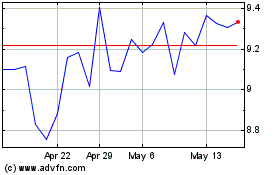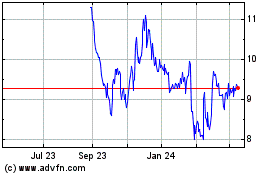Results released today from a clinical study have shown that the
drug afamelanotide can reduce critical skin damage caused by
ultraviolet (UV) radiation, a leading factor in skin cancer and
photoaging. The CUV151 study, conducted by Australian company
CLINUVEL, treated nine fair-skinned volunteers with the
photoprotective drug afamelanotide and showed that treatment could
significantly reduce artificially provoked “sunburn damage” after
just six days.
“Frequent and intense sunburn is recognised as a
primary risk factor for skin cancer, with fair skinned individuals
– known as Fitzpatrick phototypes I-III – at high-risk,” CLINUVEL’s
Head of Clinical Operations, Dr Pilar Bilbao said.
“Showing that we can objectively reduce
erythema, sunburn DNA damage, under controlled clinical conditions
after a single dose of afamelanotide provides our team with
valuable data on how this drug, and other similar molecules, can
reduce the burden of UV-induced damage. Further clinical work is
ongoing to assess the properties and influence of afamelanotide on
other parts of cellular DNA,” Dr Bilbao said.
Between five and six million cases of skin
cancers are diagnosed in the USA alone every year, with UV exposure
and fair skin proven to increase an individual’s lifetime risk.1 An
estimated US$8.1 billion is spent annually treating skin cancers in
the USA, suggesting more effective preventative measures are
required.
CLINUVEL is evaluating afamelanotide as a
photoprotective and DNA repair treatment for individuals at
highest-risk of UV and light damage, focusing first on patients
with the DNA repair disorder xeroderma pigmentosum (XP). The CUV151
study followed a parallel protocol to clinical trials for XP
patients, assessing biomarkers of UV-induced skin damage in healthy
volunteers following provocation of UV damage before and after
afamelanotide treatment. The first results showed a statistically
significant decrease in UV-erythema dose response, the redness
indicative of first DNA damage, which was provoked by incremental
doses of UV light (p=0.018). An increase in the minimal erythemal
dose – a measure of intensity of UV light to provoke sunburn – was
also found.
Earlier results in XP patients showed that
afamelanotide could reduce UV-induced DNA damage, with analyses of
skin samples (biopsies) from CUV151 ongoing to assess DNA damage in
the healthy volunteers.
“Today’s results build upon the decades of
research CLINUVEL has conducted into the use of afamelanotide to
protect skin from light, with the first evidence that a single dose
of the drug has a photoprotective effect in healthy volunteers.
These data add to our regulatory dossier for XP while further
developing our specialised healthcare products for wider
populations at highest risk of UV-induced damage and skin cancer,”
Dr Bilbao said.
Final results from the CUV151 study and further
results from CLINUVEL’s DNA Repair Program are expected later in
2023.
Media enquiries: Monsoon Communications,
Mr Rudi Michelson, +61 411 402 737,
rudim@monsoon.com.au
Note to media: CLINUVEL has released
further investor and technical releases on results from the CUV151
study. For more details, go to
www.clinuvel.com.
1 Skin & Cancer Foundation – Skin Cancer
Facts & Statistics,
https://www.skincancer.org/skin-cancer-information/skin-cancer-facts/;
American Academy of Dermatology – Skin Cancer
https://www.aad.org/media/stats-skin-cancer.
About Afamelanotide
Afamelanotide belongs to the family of
melanocortins, hormones and their analogues, which are recognised
to activate human pigmentation, reduce oxidative damage,
inflammation and swelling, and optimise the response of skin cells
to UV-induced damage. CLINUVEL is already marketing a
controlled-release formulation of afamelanotide – known as
SCENESSE® – as the world’s first photoprotective drug for the rare
disorder erythropoietic protoporphyria (EPP). Further results from
the Company’s DNA repair program are expected later in 2023.
About CLINUVEL PHARMACEUTICALS
LIMITED
CLINUVEL (ASX: CUV; ADR LEVEL 1: CLVLY; BÖRSE
FRANKFURT-DAX: UR9) is a global specialty pharmaceutical group
focused on developing and commercialising treatments for patients
with genetic, metabolic, systemic, and life-threatening, acute
disorders, as well as healthcare solutions for specialised
populations. As pioneers in photomedicine and the family of
melanocortin peptides, CLINUVEL’s research and development has led
to innovative treatments for patient populations with a clinical
need for systemic photoprotection, assisted DNA repair,
repigmentation and acute or life-threatening conditions who lack
alternatives.
CLINUVEL’s lead therapy, SCENESSE®
(afamelanotide 16mg), is approved for commercial distribution in
Europe, the USA, Israel and Australia as the world’s first systemic
photoprotective drug for the prevention of phototoxicity
(anaphylactoid reactions and burns) in adult patients with
erythropoietic protoporphyria (EPP). Headquartered in Melbourne,
Australia, CLINUVEL has operations in Europe, Singapore, and the
USA. For more information, please go to
https://www.clinuvel.com.
SCENESSE®, PRÉNUMBRA®, NEURACTHEL®, and
CYACÊLLE® are registered trademarks of CLINUVEL.
Head of Investor Relations Mr
Malcolm Bull, CLINUVEL PHARMACEUTICALS LTD
Investor Enquiries
https://www.clinuvel.com/investors/contact-us
Forward-Looking Statements
This release contains forward-looking
statements, which reflect the current beliefs and expectations of
CLINUVEL’s management. Please see the full disclaimer on CLINUVEL’s
website.
www.clinuvel.com
Level 11535 Bourke
StreetMelbourne - Victoria, Australia,
3000
T +61 3 9660 4900 F +61 3 9660 4909
Clinuvel Pharmaceuticals (TG:UR9)
Historical Stock Chart
From Mar 2025 to Apr 2025

Clinuvel Pharmaceuticals (TG:UR9)
Historical Stock Chart
From Apr 2024 to Apr 2025
